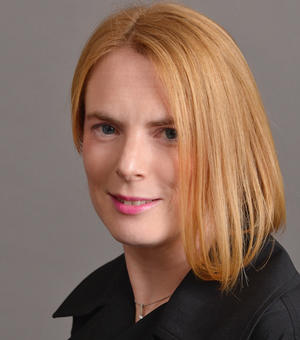Professor Naomi Waltham-Smith
Specializing in the politics of listening, Naomi Waltham-Smith is an interdisciplinary scholar working at the intersection of philosophy (especially recent French, Black radical, and decolonial thought) with music and sound studies. She is interested in how aurality is imbricated in some of the most significant and urgent political issues under contemporary capitalism, including the crises of democracy we are witnessing today, together with antiracist and environmental struggles. She has also worked on the politics of listening in contexts as varied as the Austro-German musical canon and Las Vegas casinos. Beyond academic publication, she works collaboratively in the public sphere to develop these ideas through listening workshops and citizens’ assemblies, multimedia installations in galleries and public spaces, long-term community collaborations, and policy engagement.
Waltham-Smith is the author of four books, and co-editor of a volume of the new Bloomsbury Cultural History of Western Music. Her first monograph, Music and Belonging Between Revolution and Restoration (Oxford UP, 2017) addresses, from musical-analytical and philosophical perspectives, how listening promotes ideals and experiences of community. Shattering Biopolitics: Militant Listening and the Sound of Life (Fordham UP, 2021), completed during a fellowship at Akademie Schloss Solitude, interweaves readings of deconstructionist thinkers with analyses of sound art and activism to examine aurality’s implication in the governance of life. In the wake of a resurgence of antiracist organizing on both sides of the Atlantic, her third monograph, Mapping (Post)colonial Paris by Ear (Cambridge UP, 2023), draws on a decade of fieldwork in the banlieue, supported by funding from the Mellon Foundation; the project reinvents the bourgeois figure of the flâneur as a feminist-decolonial field recordist and configures listening as an expressly spatial practice of mapping the traces of France’s coloniality. Her interest in listening extends to the university as a site of democratic deliberation. Her fourth monograph, which is forthcoming in November 2024 in Nebraska University Press’s Provocations series and is entitled Free Listening, connects with her contributions to the policy-facing and cross-sector work on academic freedom and deliberative democracy.
She is currently working on a monograph, supported by funding from the Leverhulme Trust and the British Academy and a fellowship at the Hanse-Wissenschaftskolleg, that excavates a hidden concept of listening in the history of political philosophy in the hope of illuminating the challenges facing our democracies today. Future plans include a sequel to Shattering Biopolitics focused on “ec(h)otechnics” that will explore the technological modulation of listening and posthuman modes of aural attunement to the environment.
Prior to joining Oxford in September 2023, she was Professor in the Centre for Interdisciplinary Methodologies and Deputy Chair of the Faculty of Social Sciences at the University of Warwick, where she was also Chair of Academic Freedom Review Committee. Before that she taught Music and Comparative Literature at the University of Pennsylvania (2012–2018), having held postdoctoral fellowships at City University and Indiana University, and supervised at the University of Cambridge. She is a graduate of Selwyn College, Cambridge and King’s College London.
Click here for a full, up-to-date list of publications: https://www.auralflaneur.com/writing.
Monographs
Music and Belonging Between Revolution and Restoration (New York: Oxford University Press, 2017).
Shattering Biopolitics: Militant Listening and the Sound of Life (New York: Fordham University Press, 2021).
Mapping (Post)colonial Paris by Ear (Cambridge: Cambridge University Press, 2023).
Free Listening (Lincoln, NE: University of Nebraska Press, 2024).
Edited volume
Co-edited with Alexander Rehding, A Cultural History of Music in the Industrial Age,
vol. 5 (London: Bloomsbury, 2023).
Journal articles
“Disruptive Spatiality and the Experience of Recordings of Bach’s Solo Cello Suites,” Current Musicology 82 (2006): 33–59.
“A Minimal Violence: Seven Theses on the Classical Style,” Les Cahiers de la Société québécoise de recherches en musique 11, no. 1–2 (2010): 71–80.
“Badiou contra Badiou,” Current Musicology 94 (2012): 143–64.
“Rethinking Difference and Community in Parsifal,” Opera Quarterly 29, no. 3–4 (2013): 355–60.
“The Sound of the Outside,” boundary 2 43, no. 1 (2016): 75–105.
“The Time it Takes to Listen,” Music Theory Spectrum 39, no. 1 (2017): 18–35.
“Haydn’s Impropriety,” Journal of Music Theory 62, no. 1 (2018): 119–44.
“Form and Repetition: Deleuze, Guillaume and Sonata Theory,” Music Analysis 37, no. 2 (2018):
150–83.
“Confronting Continental Philosophy’s Fears of Biologism,” Music & Science 1 (2018): 1–10.
“The Sonic Habitués of the Strip: Listening in Las Vegas,” Sound Studies 3, no. 2 (2018): 115–33.
“A Music Worthy of the Name; Or, Agamben’s Museicology,” special issue on Music and Theory ed. Irving Goh and Christopher Swithinbank, CR: The New Centennial Review 18, no. 2 (2018): 179–202.
“Turning Ears; Or, Ec(h)totechnics,” special issue on The Turn ed. Andrea Bechner and Carlos Rojas, Diacritics 47, no. 4 (2019): 110–29.
“The Use of Ears: Agamben Overhearing Derrida Overhearing Heidegger,” parrhesia: a journal of critical philosophy 33 (2020): 113–49.
“For Transdisciplinarity,” colloquy on Stephen Amico’s essay, “‘We Are All Musicologists Now’; or, the End of Ethnomusicology,” Journal of Musicology 37, no. 1 (2020): 51–62.
“Listening Alone Together. Political Subjectivation in the Time of Pandemic,” special issue on Listening in the Time of Pandemic, ed. with Jessica Feldman, Sociologica 14, no. 2 (2020): 27–35.
“Homofaunie: Cixous, Derrida, and Non-Human Tonalities,” special issue on Animality and Textuality, Word and Text: A Journal of Literary Studies and Linguistics 11 (2021): 68–82.
“The Silences of Feeling,” special issue on Rewriting/Rereading Lyotard’s Le différend, ed. Daniel Hoffman-Schwartz and Simon Morgan Wortham, Philosophy Today 66, no. 2 (2022): 287–307.
“Fabulous Fox (Agamben in the Henhouse),” Malice 13 (2022).
“Unflappable,” special issue on Derrida’s Geschlecht III, ed. Katie Chenoweth and Julia Ng, Paragraph 45, no. 3 (2022): 336–50.
“Nationalism, Mania, and Specters of Neoliberalism,” special issue on Derrida’s Specters of Marx at 30, CR: The New Centennial Review 23, no. 2 (2023): 53–81.
“Noise Strike: Wakeful Listening at the Limits of Liberal Cognition,” special issue on The Mental State of Noise and the New Frontiers of Cognition, ed. Cécile Malaspina, Angelaki 28, no. 3 (2023): 133–43.
“Life, Would that it Might be to Say—Power: Metaphor, Tragen, Épuis(s)ement,” Derrida Today 16, no. 2 (2023): 158–69.
“Who Gets a Hearing? Academic Freedom and Critique in Derrida’s Reading of Kant,” special issue on Critical Freedoms, ed. Lisa Downing, Paragraph 46, no. 3 (2023): 317–36.
Book chapters
“Sequence,” in Oxford Handbook of Critical Concepts in Music Theory, ed. Alexander Rehding and Steven Rings, 577–601 (New York: Oxford University Press, 2019 [online in 2016])—volume won the 2020 Society for Music Theory Prize for Outstanding Multi-Author Collection.
“Deconstruction and Timbre,” in Oxford Handbook of Timbre and Orchestration, ed. Alexander Rehding and Emily Dolan, 53–67 (New York: Oxford University Press, 2021 [online in 2018])—volume won the 2022 American Musicological Society Ruth A. Solie Prize.
“Sonic Methodologies by Way of Deconstruction,” in The Bloomsbury Handbook of Sonic Methodologies, ed. Marcel Cobussen and Michael Bull, 57–73 (London: Bloomsbury, 2020).
“Deconstruction,” in Oxford Handbook of Western Music and Philosophy, ed. Tomás McAuley, Nanette Nielsen, and Jerrold Levinson, 403–14 (New York: Oxford University Press, 2021).
“Unexceptional Events; Or, Scarcely Audible Literature,” in Literature and Event: Twenty-First Century Reformulations, ed. Derek Attridge and Mantra Mukim, 57–73 (New York: Routledge, 2021).
“The Rhythm of Democracy, The Pulse of Deconstruction,” in The Politics of Friendship: Amity and Enmity, ed. Luke Collison, Cillian Ó Fathaigh, and Georgios Tsagdis, 211–22. (Edinburgh: Edinburgh University Press, 2022).
“The Demonstration of Accent: Media, Manif, Monstrosity,” in Thinking with an Accent: Toward a New Object, Method, and Practice, ed. Pooja Rangan, Akshya Saxena, Ragini Tharoor Srinivasan, and Pavitra Sundar, 245–65 (Berkeley: University of California Press, 2023)—volume won the 2024 American Comparative Literature Association René Wellek Prize for best edited essay collection.
“What Sounds (are) Normal?” in Ästhetische Normativität in der Musik, ed. Jens Papenburg and Tobias Janz, 371–81 (Frankfurt: Vittorio Klostermann, 2023).
“Politics: The Unexceptional Politicking of Labor, Enjoyment, and Obstruction,” in A Cultural History of Music in the Industrial Age, vol. 5, ed. with Alexander Rehding, 71–92. (London: Bloomsbury, 2023).
“‘A Chest Full of Cello Boughs’: The Sonorous Force of Writing in Deconstructive Readings of Celan,” in Thresholds, Encounters: Paul Celan and the Claim of Philology ed. Kristina Mendicino and Dominik Zechner, 127–49 (Albany, NY: SUNY Press, 2023).
Her research interests are in: politics of listening; philosophy of music, sound, and listening; sound studies and field recording; environmental humanities; music analysis of 18th- and 19th-century European repertoires.




